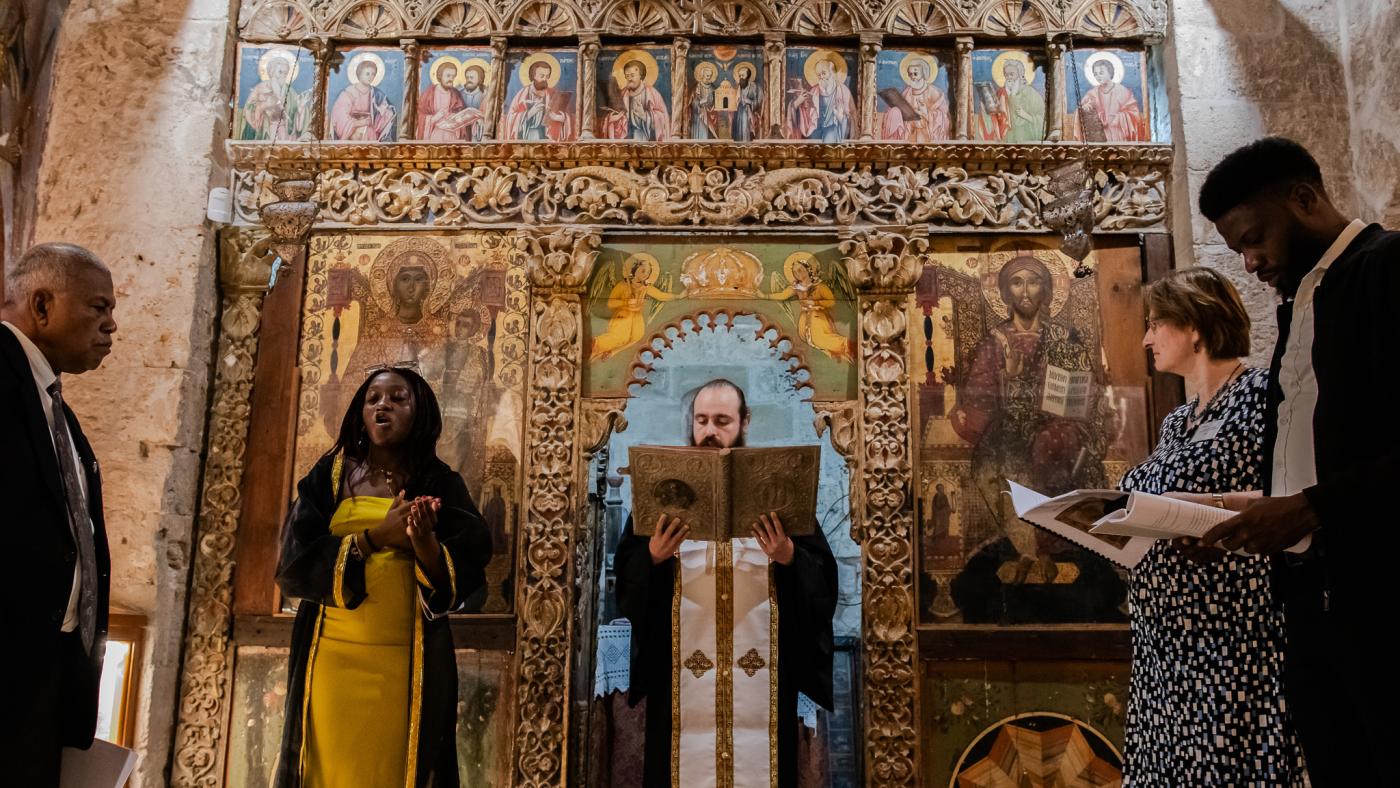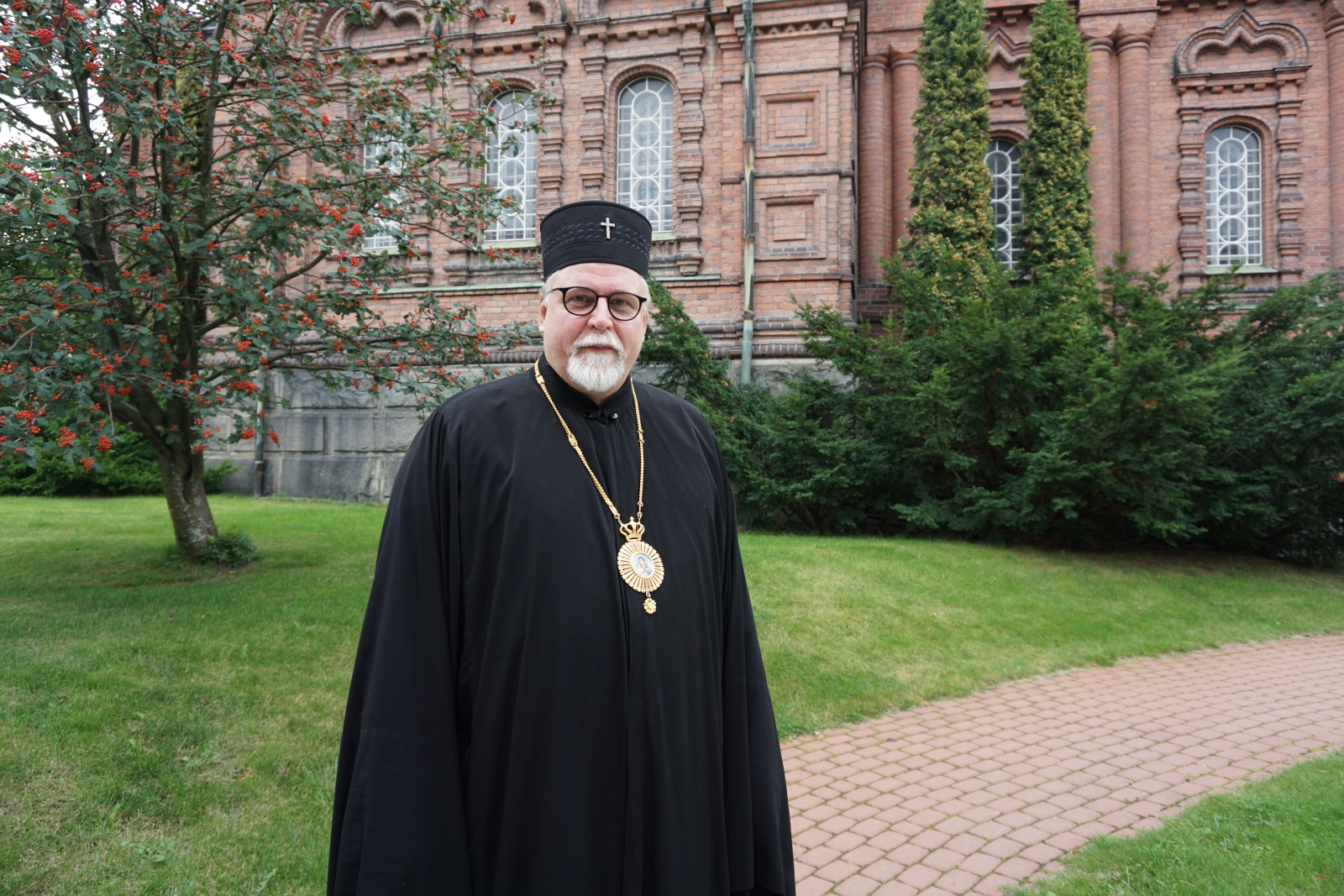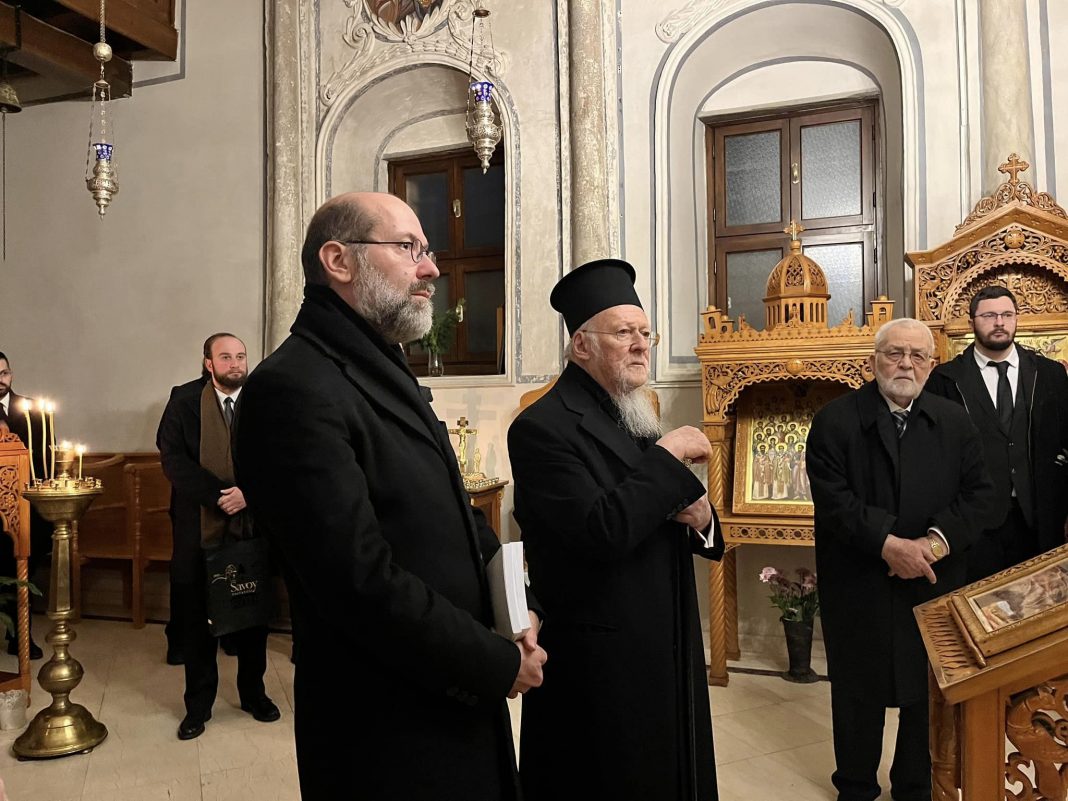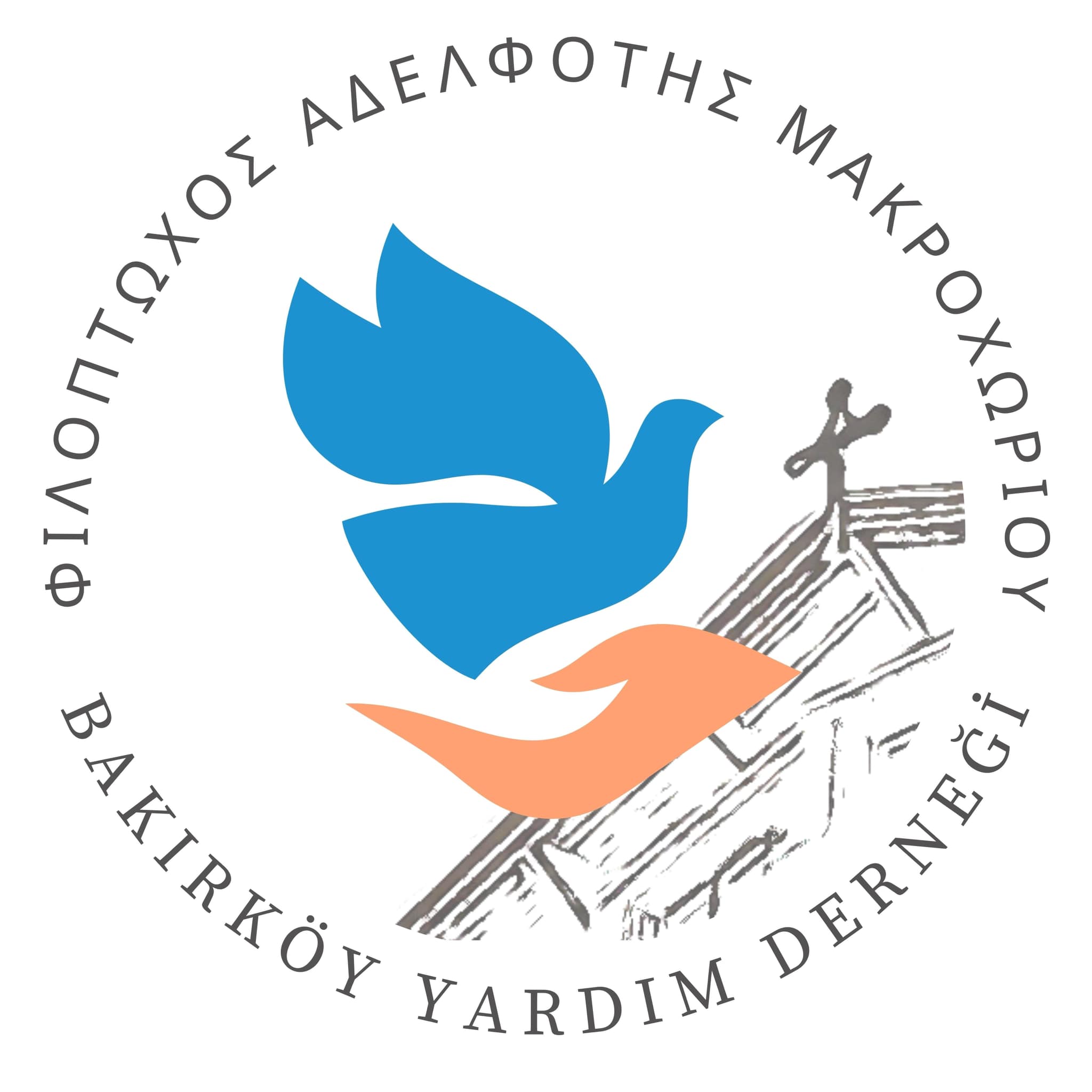Hieromartyr Philoumenos of Jacob’s Well (29 November)
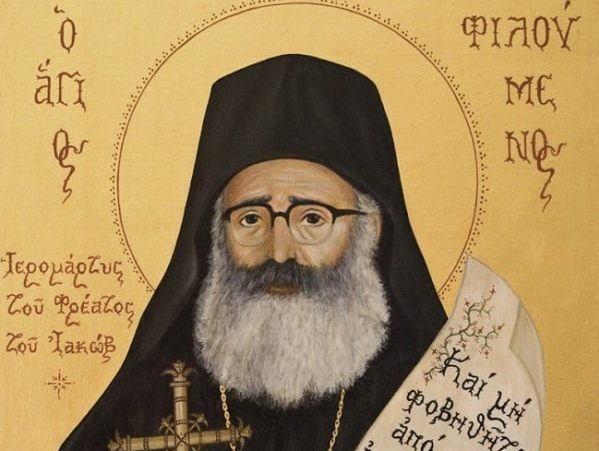

Synaxarion For Saint Philoumenos the New Hieromartyr
(November 16/29)
Verses
Philoumenos, being befriended by Christ
Was arrayed in the radiant porphyry of martyrdom.
Philoumenos was recently slaughtered violently
As the friend of God by the Well of Jacob.
On this day, we celebrate the Holy Glorious New Hieromartyr Philoumenos the Cypriot, of the surname Chasapes, who preserved the Holy Pilgrimage of the Well of Jacob reverently and faithfully, and baptized seventy Jewish souls, and whose head was split seventy times with an axe by a fanatical Jew and was perfected in martyrdom, in the year 1979. His holy body was uncovered and found incorrupt and fragrant, and is kept now and ever unharmed in the Holy City.
“On November 16/29, 1979 they burst into the monastery and with a hatchet butchered Archimandrite Philoumenos in the form of a cross. With one vertical stroke they clove his face, with another horizontal stroke they cut his cheeks as far as his ears. His eyes were plucked out. The fingers of his right hand were cut into pieces and its thumb was hacked off. These were the fingers with which he made the sign of the Cross.”
The holy martyr of the 20th century, Philoumenos the Cypriot, came from the village of Orounta of the province of Morphou. From a young age he along with his brother Elpidios were apprenticed in the sacred letters of Christ by their grandmother. They mainly studied the lives of the Saints and hymns of the Church. The Saint at the time, along with his brother, left for the Monastery of Stavrovouni and stayed there for five years. Afterwards, they both left for Jerusalem. Saint Philoumenos stayed in Jerusalem for 46 years. The Saint found a martyric death by fanatic Zionist Jews who massacred him in the evening while he was doing vespers at the Well of Jacob where he lived, a loyal guardian of the Holy Places and traditions of centuries.
The Church of Cyprus and especially the Holy Metropolis of Morphou today celebrate the memory of the martyr Saint Philoumenos the New, the Cypriot. The neomartyr was born in 1913 and was a child of George and Magdalene Hasapi or Ourountioti , and the twin brother of Archimandrite Elpidios. Even though his parents come from the village of Orounta of the metropolitan area of Morphou, they lived at the parish of St. Savvas in Nicosia, since his father had his own inn and bakery there. Together with his brother Elpidios, they showed a particular enthusiasm for prayer and read the lives of the Saints, particularly they where touched by the life of Saint John the Kalyvitis, who in some way made an impact on them, to the point of desiring to follow the life of monasticism.
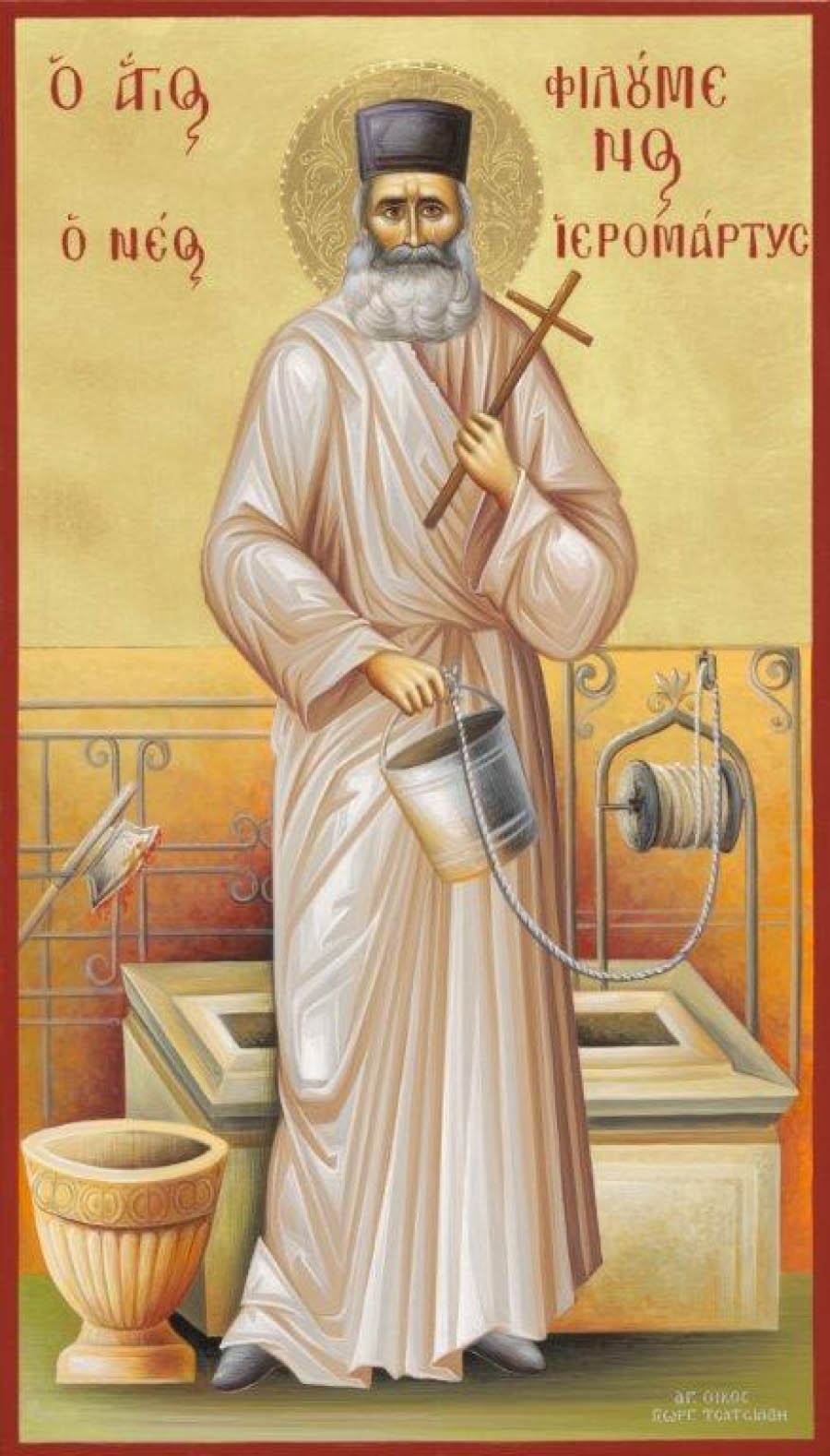

Also, apart from their mother, their grandmother Loxantra, had in particular influenced them in learning the ways of the Church and in developing a truly Orthodox conscience. At the age of 14, the two brothers left for the Monastery of Stavrovouni and then left for Jerusalem, where they attended High School there. After they finished High School in 1939, Elpidios served as a priest in different places and died on 29 November 1983. Philoumenos remained in Jerusalem and in 1979 was appointed as caretaker of the Monastery of Saint Jacob’s Well. While living there, on November 29, 1979, during the time when the Saint was doing vespers, he was murdered by Zionist Jews with an ax.
The week before, a group of fanatical Zionists came to the Monastery of Jacob’s Well, claiming it as a Jewish holy place and demanding that all crosses and icons be removed. Of course, the Saint pointed out that the floor upon which they were standing had been built by Emperor Constantine before 331 A.D. and had served as an Orthodox Christian holy place for sixteen centuries before the Israeli State was created, and had been in Samaritan hands eight centuries before that. (The rest of the original church had been destroyed by the invasion of the Shah Khosran Parvis in the seventh century, at which time the Jews had massacred all the Christians of Jerusalem.) The group left with threats, insults and obscenities of the kind which local Christians suffer regularly. After a few days, on November 29, during a torrential downpour, a group broke into the monastery; the saint had already put on his epitrachelion for Vespers. The piecemeal chopping of the three fingers with which he made the Sign of the Cross showed that he was tortured in an attempt to make him deny his Orthodox Christian Faith. His face was cloven in the form of the Cross. The church and holy things were all defiled.
The body of the Saint was handed over to the Orthodox six days after his massacre, but retained its flexibility and was buried in the cemetery of Mount Zion. After four years, as is customary, his body was exhumed. It was found to be substantially incorrupt and had the smell of a beautiful fragrance. Then, the tomb was closed and was reopened during the Christmas of 1984, when the body was found to be partially incorrupt and was placed in a glass shrine in the northern part of the sacred Holy Altar in Mount Zion.
Hieromartyr Philoumenos was ranked among the Saints of the Church of Jerusalem on 30 August 2008, and hence then, his incorrupt body was transferred at the pilgrimage site of Saint Jacob’s Well where he found martyrdom for the love of Christ. His memory is honored annually on November 29, especially in the community of Orounta with an all night long church service.
Apolytikion in the First Tone
The offspring of Orountas, and from the root of Cyprus, and new Hieromartyr of the divine Well of Jacob, O faithful let us honor Philoumenos as a defender of our faith, and as an eternal soldier of Christ’s truth, we fervently cry out: glory to Christ Who glorified you, glory to Him Who kept you incorrupt, glory to Him who revealed you as our benefactor towards heaven.
Apolytikion in the Third Tone
Vanquisher of demons, dispeller of the powers of darkness, by thy meekness thou hast inherited the earth and reignest in the Heavens; intercede, therefore, with our Merciful God, that our souls may be saved.
Megalynarion
Rejoice, revered root of Orounta, rejoice, very-precious treasure of the island of Cyprus, rejoice, the beauty of the Church of Morphou, Philoumenos, new exemplar of martyrs.
Source: John Sanidopoulos

